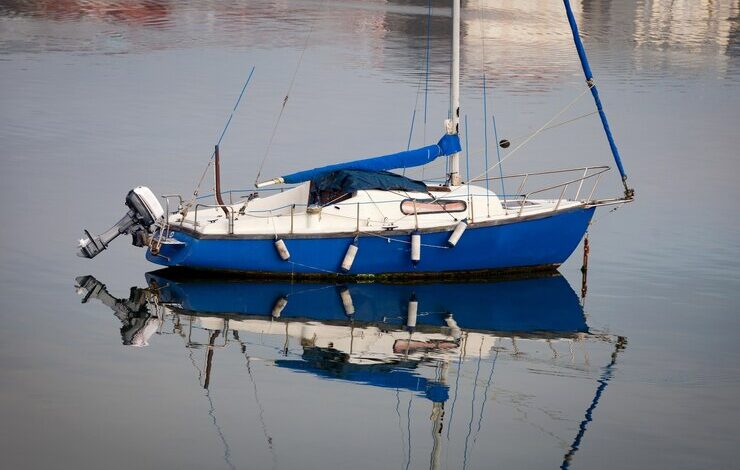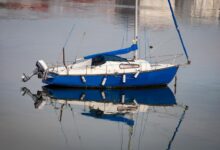Choosing the Right Boat: Factors to Consider for Your Needs

Understanding Your Need
Before diving into the world of boat ownership, assessing your specific needs is crucial. What will you be using your boat for? Fishing, cruising, watersports, or perhaps even living aboard? Each use demands distinct boat features. Brands like Blackfin Boats offer a variety of boats tailored to different activities, making it easier to find the perfect match for your lifestyle.
Identifying your primary usage can significantly narrow down your options. For instance, an avid fisherman might require a boat equipped with fishing gear, ample storage, and specialized amenities like live wells and rod holders. In contrast, if watersports are more your speed, you’ll likely look for boats with powerful engines, enhanced stability, and towing capabilities for water skiing or wakeboarding activities. According to Discover Boating, knowing your intended use is the first step to making a well-informed decision and helps ensure that you invest in a boat that meets all your requirements.
Types of Boats
The variety of boats available on the market can be overwhelming, with each type designed for specific activities in mind. Some common types include:
- Fishing Boats: These boats are built for sport or recreational fishing with features like rod holders, live wells, and spacious decks, giving you the perfect setup for a productive day on the water.
- Pontoon Boats: Ideal for leisurely cruises and social gatherings on calm waters, pontoon boats offer ample seating and stability, making them a popular choice for families and groups.
- Cabin Cruisers: Perfect for overnight trips, cabin cruisers come equipped with sleeping quarters, a small kitchen, and a bathroom, providing the comforts of home on the water.
- Sailboats: Utilizing wind power, sailboats, ranging from small dinghies to large yachts, are ideal for those who enjoy the challenge and tranquility of sailing.
Understanding the different types of boat can help you choose the best option for your needs. This will ensure that you maximize your enjoyment while on the water and make your investment worthwhile.
Considering the Size
Bigger isn’t always better when it comes to boats. The size you need will depend on several factors, such as the number of passengers, the type of waterbody you will navigate, and the storage space available. A smaller boat might be perfect for solo trips or small lakes, offering easy maneuverability and lower costs. In contrast, larger boats are ideal for bigger waters, more passengers, and longer outings, providing additional amenities and storage space.
Consider your towing vehicle’s capacity if you plan to transport your boat to different locations. Larger boats may require more substantial vehicles for towing, and they often come with higher operational costs, including maintenance and storage fees. Ensuring you have the appropriate infrastructure to support a larger boat is crucial in your decision-making process.
New vs. Used Boats
Choosing new and used boats can be challenging, with both options offering distinct advantages. New boats come with warranties and the latest features, providing peace of mind and minimizing the risk of immediate repairs. They also offer the latest technology and design improvements, enhancing your boating experience. However, new boats are generally pricier, which might be a consideration for those on a budget.
On the other hand, used boats are more affordable and can offer excellent value for money. However, they may require more maintenance and a greater risk of unforeseen issues. Inspecting any used boat thoroughly before purchasing can save you from future headaches. Leveraging services from experienced boat inspectors can provide peace of mind, and it’s always advisable to request maintenance records and, if possible, speak to the previous owner about the boat’s history.
Budgeting for Your Boat
Establishing a budget is crucial when selecting a boat. Besides the initial purchase cost, consider ongoing expenses such as fuel, insurance, docking fees, and maintenance. This comprehensive guide from Boating Magazine provides detailed insights into the costs associated with different types of boats, helping you to plan your budget better.
A well-planned budget ensures that you won’t be caught off guard by the numerous expenses of boat ownership. These might include annual maintenance, unexpected repairs, registration fees, and the costs of upgrading or replacing equipment. Setting aside funds for these expenses can prevent financial strain and allow you to enjoy your boat without constant worry about the costs.
Maintenance and Storage
Regular maintenance ensures that your boat stays in top condition, prolonging its longevity and operational effectiveness. Important maintenance tasks include:
- Regular cleaning to prevent the buildup of dirt, algae, and other materials that can damage the boat’s hull and components.
- Conducting engine checks and oil changes per the manufacturer’s guidelines to ensure the engine runs smoothly and efficiently.
- Winterizing your boat if you live in colder regions to protect the engine and other systems from freezing temperatures.
Additionally, consider where you will store your boat. Options include marina slips, dry storage, or keeping it on a trailer at home. Choosing the right storage solution can protect your investment and prolong the life of your boat. Marina slips offer convenience but come with rental fees, while dry storage protects from the weather but may require transport to the water. Storing the boat at home is cost-effective but requires ample space and potential neighborhood compliance.
Test Driving the Boat
Never purchase a boat without taking it for a test drive. This allows you to check how it handles, the comfort level, and whether all systems work. Test driving is essential to ensure the boat meets all your expectations and is fit for your intended use. During the test drive, pay attention to the responsiveness of the controls, engine noise levels, and overall stability. Note how the boat handles in various conditions, including speed, turning, and docking maneuvers.
Don’t hesitate to ask questions about any concerns or issues during the test drive. Consulting with the seller or dealer can provide further insights and may reveal additional details about the boat’s condition and performance. This comprehensive testing ensures you make a well-informed decision, reducing the risk of buyer’s remorse or future complications.
Safety Features
Your boat should have essential safety features like life jackets, fire extinguishers, and first aid kits. It’s also advisable to have a VHF radio and GPS. According to the U.S. Coast Guard, safety should be your top priority when choosing a boat, ensuring that you and your passengers are protected on the water.
Regularly inspect all safety equipment to ensure it is in good working order and replace expired items. Ensure all passengers know the safety protocols and how to use the safety gear. Participating in a boating safety course can also enhance your knowledge and preparedness, contributing to a safer boating experience.
